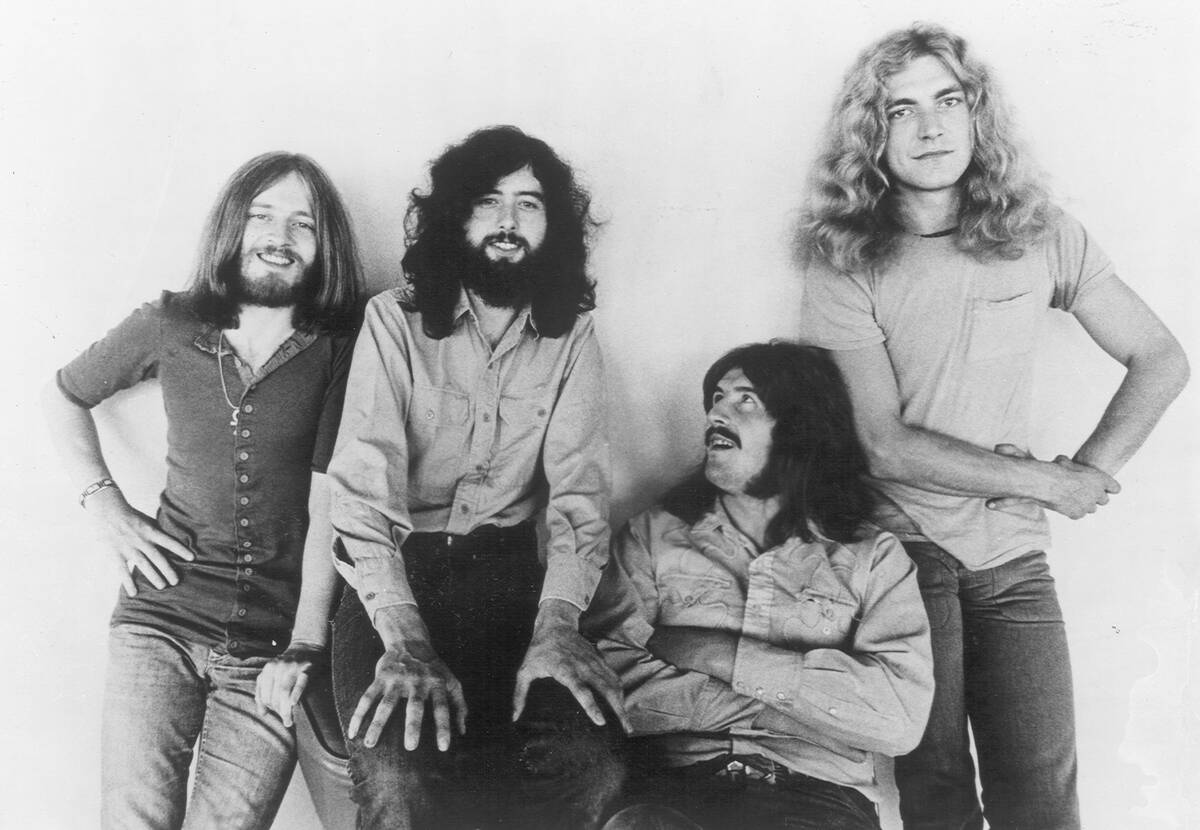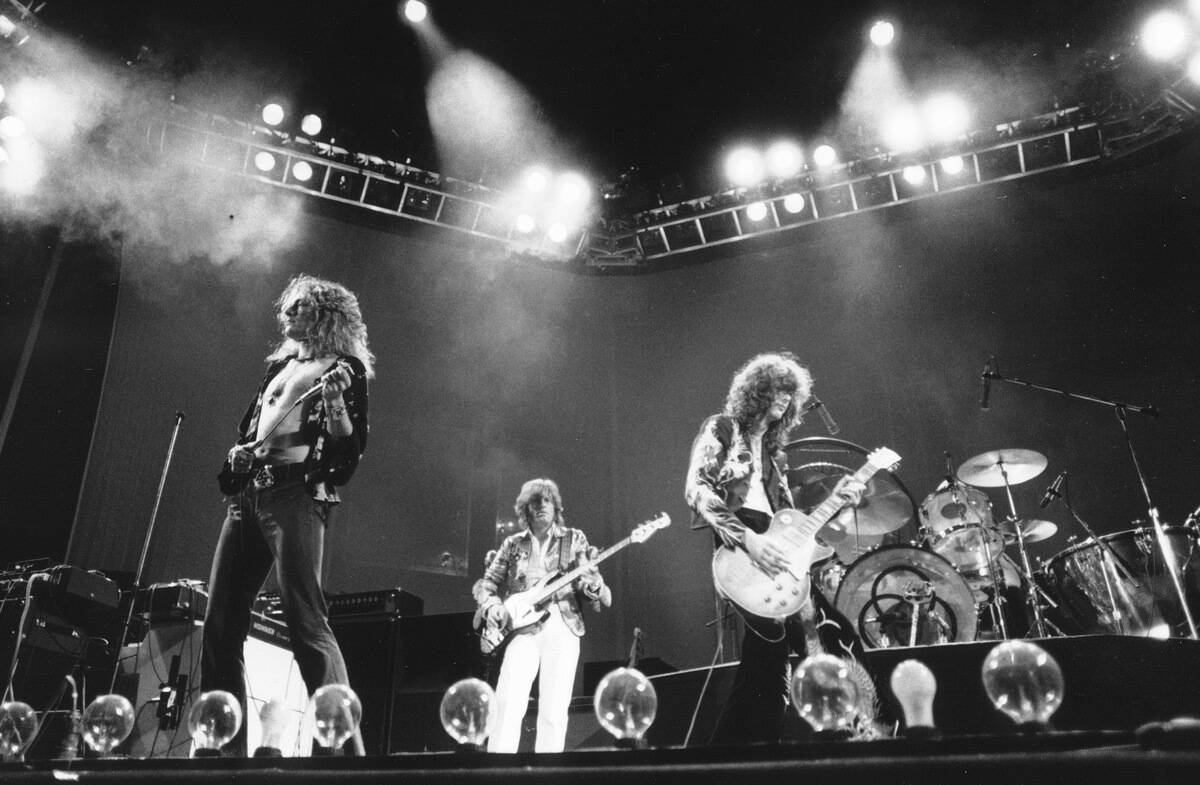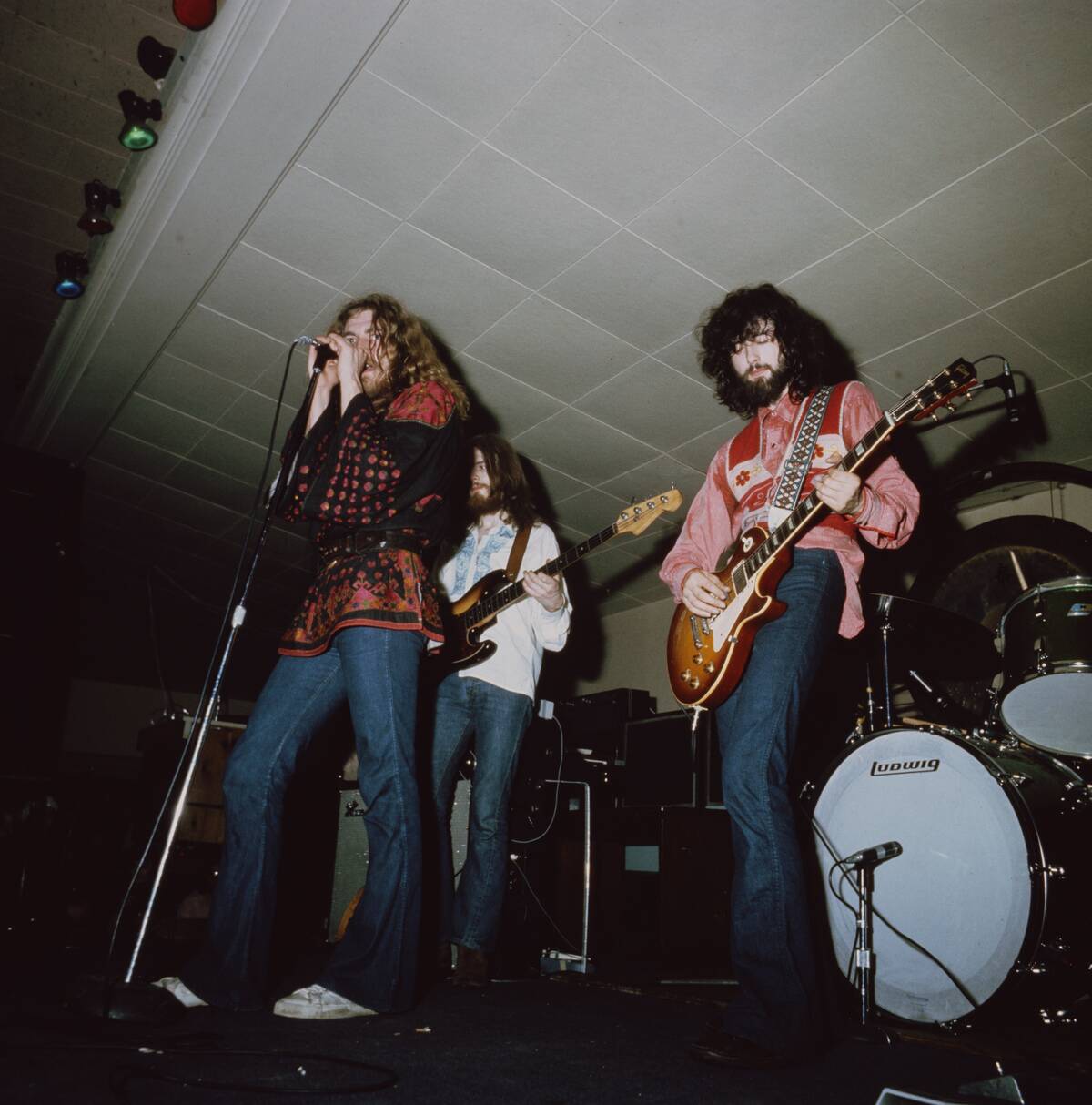Songs to include on every Led Zeppelin playlist
Led Zeppelin remains an iconic force in rock music, their influence resonating across generations. Known for their electrifying sound and legendary live performances, they have carved out a unique place in music history. With a perfect blend of blues, hard rock, and folk, their tracks continue to captivate. From their experimental soundscapes to lyrical storytelling, Led Zeppelin’s music transcends time, making them a staple in the playlists of rock enthusiasts and new listeners alike.
The Birth of a Legend: “Good Times Bad Times”

“Good Times Bad Times” was the opening track on Led Zeppelin’s debut album, released in 1969, setting the stage for their explosive entry into the rock scene. The song features John Bonham’s innovative drumming techniques, such as using his bass drum pedal in a way that would become his signature. This track captures the exuberance and raw energy of the band, laying the groundwork for their future musical explorations and establishing them as pioneers of hard rock.
The Epitome of Rock: “Whole Lotta Love”

Released in 1969, “Whole Lotta Love” became one of Led Zeppelin’s most enduring hits. The song is driven by Jimmy Page’s iconic guitar riff, which Rolling Stone ranked as one of the greatest of all time. Robert Plant’s powerful vocals and the song’s trippy middle section highlight the band’s willingness to experiment. This track solidified Led Zeppelin’s reputation as rock titans, showcasing their ability to blend heavy riffs with psychedelic soundscapes.
A Journey into the Mystical: “Ramble On”

“Ramble On,” from the 1969 album “Led Zeppelin II,” invites listeners on a whimsical journey with its Tolkien-inspired lyrics and blend of acoustic and electric elements. The song’s narrative intertwines with the fantasy worlds of “The Lord of the Rings,” creating a rich tapestry of imagery. This track highlights the band’s knack for storytelling, using music as a canvas for exploring mythical themes and captivating audiences with its enchanting sound.
The Ultimate Anthem: “Stairway to Heaven”

No discussion of Led Zeppelin is complete without mentioning “Stairway to Heaven,” a track from their 1971 album “Led Zeppelin IV.” The song is often hailed as one of the greatest rock songs of all time. Its gradual build-up from a gentle acoustic intro to a powerful electric crescendo is legendary. The lyrics, filled with allegorical imagery, have been analyzed for decades. “Stairway to Heaven” remains a quintessential example of the band’s artistry and enduring legacy.
Blues Rock at Its Best: “Since I’ve Been Loving You”

“Since I’ve Been Loving You,” featured on the 1970 album “Led Zeppelin III,” is a masterclass in blues rock. The song showcases Jimmy Page’s virtuosic guitar work and Robert Plant’s emotive vocals. This track captures the essence of blues, with its soulful expression of longing and heartbreak. The interplay between the band members is seamless, creating a powerful and emotional experience that resonates with listeners who appreciate the depth and rawness of blues music.
A Touch of the Exotic: “Kashmir”

“Kashmir,” from the 1975 album “Physical Graffiti,” is one of Led Zeppelin’s most ambitious compositions. The song’s hypnotic rhythm and Middle Eastern-inspired melodies transport listeners to distant lands. Page’s use of alternate tunings and orchestration creates a rich, layered sound that is both epic and otherworldly. “Kashmir” stands as a testament to the band’s ability to push musical boundaries and incorporate diverse influences into their signature rock sound.
Acoustic Beauty: “Going to California”

“Going to California,” from the “Led Zeppelin IV” album, is a departure from the band’s heavier songs, showcasing their acoustic prowess. The track features delicate folk-inspired guitar work and Plant’s reflective lyrics, inspired by his experiences and the longing for a simpler life. The song’s serene atmosphere and heartfelt delivery offer a glimpse into the band’s versatility, proving that their musical range extends beyond hard rock into the realms of folk and acoustic storytelling.
The Power of Mystery: “No Quarter”

“No Quarter,” from the 1973 album “Houses of the Holy,” exudes an eerie and atmospheric vibe that sets it apart from other Led Zeppelin tracks. The song features John Paul Jones’ haunting keyboard work, which creates an almost otherworldly soundscape. The lyrics, shrouded in mystery, contribute to the song’s enigmatic allure. “No Quarter” showcases the band’s ability to evoke a sense of intrigue and wonder, captivating listeners with its dark, moody ambiance.
A Celebration of the Groove: “Trampled Under Foot”

“Trampled Under Foot,” from the 1975 album “Physical Graffiti,” is a funk-infused rock track that highlights John Paul Jones’ command of the clavinet. The song’s infectious groove and Plant’s playful lyrics make it a standout in the band’s discography. Influenced by blues legend Robert Johnson’s “Terraplane Blues,” the track demonstrates the band’s talent for blending genres, creating a lively and engaging listening experience that leaves fans wanting more.
The Art of Storytelling: “The Battle of Evermore”

“The Battle of Evermore” is a standout track from “Led Zeppelin IV,” featuring Sandy Denny of Fairport Convention as a guest vocalist. The song is inspired by British folklore and mythology, with lyrics that evoke images of medieval battles and epic tales. The use of mandolin and acoustic guitar creates a haunting, timeless sound. This track exemplifies the band’s storytelling prowess, transporting listeners to a world of fantasy and adventure through music.
Pure Energy: “Rock and Roll”

“Rock and Roll,” from the “Led Zeppelin IV” album, is an adrenaline-fueled homage to the early days of rock music. The song features one of Bonham’s most memorable drum intros, setting the stage for a high-octane ride. Page’s blistering guitar riffs and Plant’s energetic vocals capture the essence of rock’s rebellious spirit. This track is a celebration of the genre’s roots, embodying the raw power and excitement that make rock music timeless.
The Essence of Psychedelia: “Dazed and Confused”

“Dazed and Confused,” originally a cover of a Jake Holmes song, became a staple of Led Zeppelin’s live performances. Featured on their debut album, the song showcases Page’s innovative use of the violin bow on the guitar, creating a psychedelic soundscape. The track’s extended improvisational sections and haunting lyrics encapsulate the experimental spirit of the late 1960s, making it a quintessential piece of the band’s early repertoire and a fan favorite.
A Touch of Folk: “Tangerine”

“Tangerine,” from the 1970 album “Led Zeppelin III,” is a beautifully crafted folk-rock ballad. The song features Page’s melodic acoustic guitar work, accompanied by Plant’s introspective lyrics about lost love. The track’s warm, nostalgic feel is enhanced by its layered instrumentation and harmonies. “Tangerine” highlights the band’s ability to blend folk influences with their rock roots, creating a tender and evocative piece that resonates with listeners.
The Spirit of Adventure: “Over the Hills and Far Away”

“Over the Hills and Far Away,” from the 1973 album “Houses of the Holy,” captures the spirit of adventure with its dynamic shifts between acoustic and electric sections. The song opens with a gentle acoustic intro before launching into a powerful rock anthem. Plant’s lyrics, filled with wanderlust and exploration, perfectly complement the music. This track embodies Led Zeppelin’s ability to take listeners on a journey, blending storytelling with musical mastery.
The Call of the Wild: “Black Dog”

“Black Dog,” from “Led Zeppelin IV,” is driven by a complex, shifting time signature that keeps listeners on their toes. The song’s title was inspired by a stray black Labrador retriever that wandered around the recording studio. Featuring a memorable call-and-response between Plant’s vocals and the band’s instrumentation, “Black Dog” showcases the raw, untamed energy that defines Led Zeppelin’s sound. It’s a testament to their creativity and ability to push musical boundaries.
A Unique Journey: “Achilles Last Stand”

“Achilles Last Stand,” from the 1976 album “Presence,” is an epic track that spans over ten minutes. The song features intricate guitar work by Page and a driving rhythm section led by Bonham. Inspired by Plant’s travels in Morocco, the lyrics evoke a sense of heroism and adventure. This track is a testament to the band’s ability to craft long, complex compositions that captivate listeners from start to finish, showcasing their musical prowess and ambition.
A Nod to the Blues: “When the Levee Breaks”

“When the Levee Breaks,” from “Led Zeppelin IV,” is a reimagining of a blues song by Kansas Joe McCoy and Memphis Minnie. The track is notable for Bonham’s iconic drum sound, achieved through innovative recording techniques. Page’s slide guitar and Plant’s harmonica add to the song’s bluesy feel. The lyrics, reflecting on the devastation of the 1927 Mississippi flood, resonate with themes of struggle and resilience. This track is a powerful homage to the band’s blues roots.



